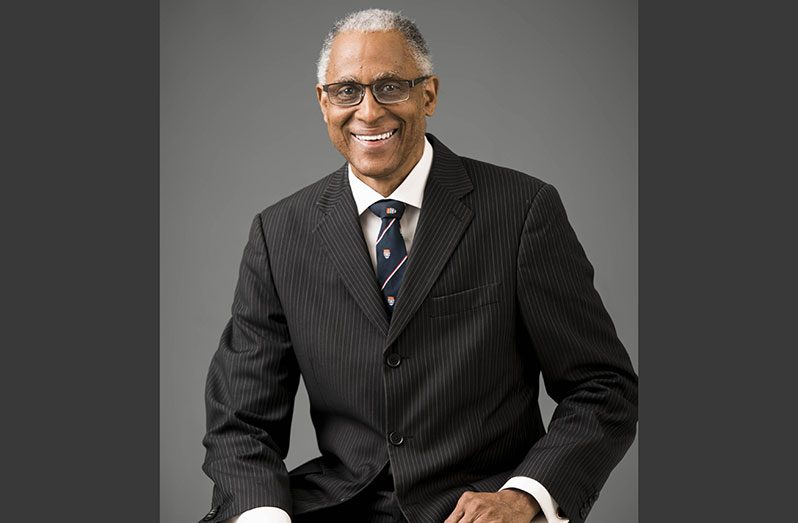–suggests that this be done before the end of this year
PRESIDENT of the Caribbean Court of Justice (CCJ), Justice Adrian Saunders, has called for the substantive appointment of a Chancellor of the Judiciary and a Chief Justice before the end of 2022.
He issued this call while delivering his keynote address at the Guyana Bar Association’s (GBA) dinner, which was held on Saturday, April 9, at the Marriott Hotel.
The dinner ended a week of activities held by the association in celebration of the inaugural Law Week under the theme, “Advancing the rule of law under the new normal.”
During his address, Justice Saunders praised Guyana’s jurisprudence trajectory, which he said is moving forward in an excellent direction, except for one significant blunder.
“There is one significant blot on an otherwise impressive Guyanese legal and judicial landscape. For the country to have not appointed a Chancellor for 17 long years is very disappointing, likewise, to be without an appointed Chief Justice for several years,” he said.
There has been a 20-year impasse on judicial appointments with the last substantive Chancellor being Justice Desiree Bernard. The current Chancellor, Yonette Cummings-Edwards and Chief Justice Roxane George have both been acting in their respective positions for a number of years.

According to the provision made in Article 127 (1) of the Constitution: “The Chancellor and the Chief Justice shall each be appointed by the President, acting after obtaining the agreement of the Leader of the Opposition.”
Against this backdrop, Justice Saunders said, “As the President of your final court, I believe I have a right and a duty publicly to express the view that Guyana should not let this year pass and not remedy this regrettable situation.”.
Last week, during the post-ceremonial programme for the opening of the April session of the Demerara Criminal Assizes, President of the GBA, Pauline Chase, called for the appointment of persons to serve on the Judicial Service Commission (JSC), which has not been reconstituted since 2017.
The JSC by legal definition is the guardian of Guyana‘s judicial autonomy. The commission is responsible for making recommendations for judicial appointments and removing or exercising disciplinary control over persons holding or acting in judicial offices.
Article 128 (1) of Guyana’s constitution states that “judges, other than the chancellor and chief justice, shall be appointed by the President, who shall act in accordance with the advice of the Judicial Service Commission.”
“The effects of its absence goes without saying, and while I’m sure that blame can be appointed by defenders over the years for its absence, I wish to sound the warning that the situation grows more dire with each and every passing day,” Chase said.

Attorney General (AG) and Minister of Legal Affairs, Anil Nandlall S.C, had endorsed Chase’s call during an airing of his Facebook programme, ‘Issues in the News.’
“This has long been my position; reason being is that ever since this formula was put into the constitution, a President has never been able to secure the agreement of the Opposition Leader on the matter. As a result, since 2001, we have not had the substantive appointment of neither a Chancellor nor Chief Justice, which is a real sad state of affairs,” he said.
According to Nandlall, the “formula” for judicial appointments needs to be changed since no other country in the Commonwealth Caribbean has such a formula.
“In fact, the only country in the world that has such a formulation I believe is Pakistan, and like us, they have never had an agreement for the appointment of a chief justice… the system simply does not work,” he said.
He explained that the government will soon be embarking upon a constitutional reform exercise, with the hope of changing the process.
“We have 22 years of experience, so when we start the constitution reform process, I hope that we would be guided by these real examples and don’t make fanciful recommendations, idealistic and unreal recommendations.”
“The thing simply does not work. It makes no sense putting into a law and worse yet, putting into a constitution a mechanism that is going to cause deadlock,” Nandlall said on his programme.













